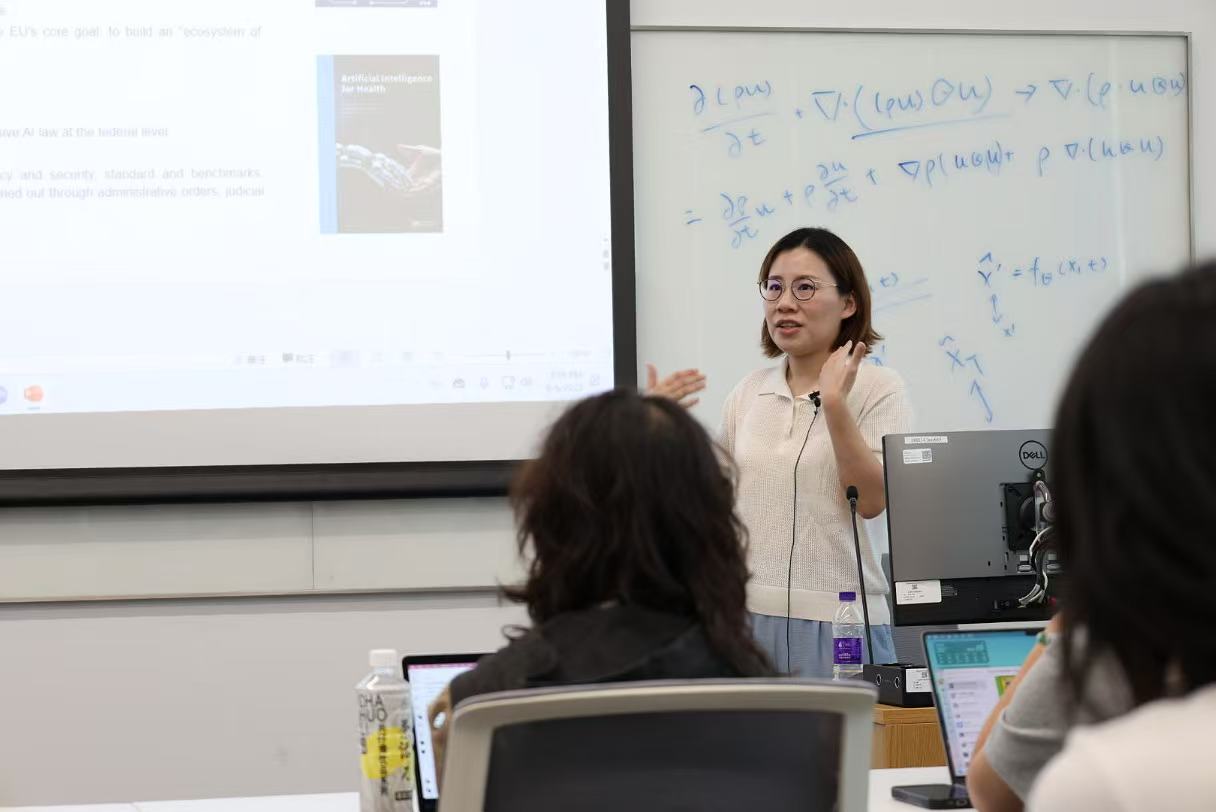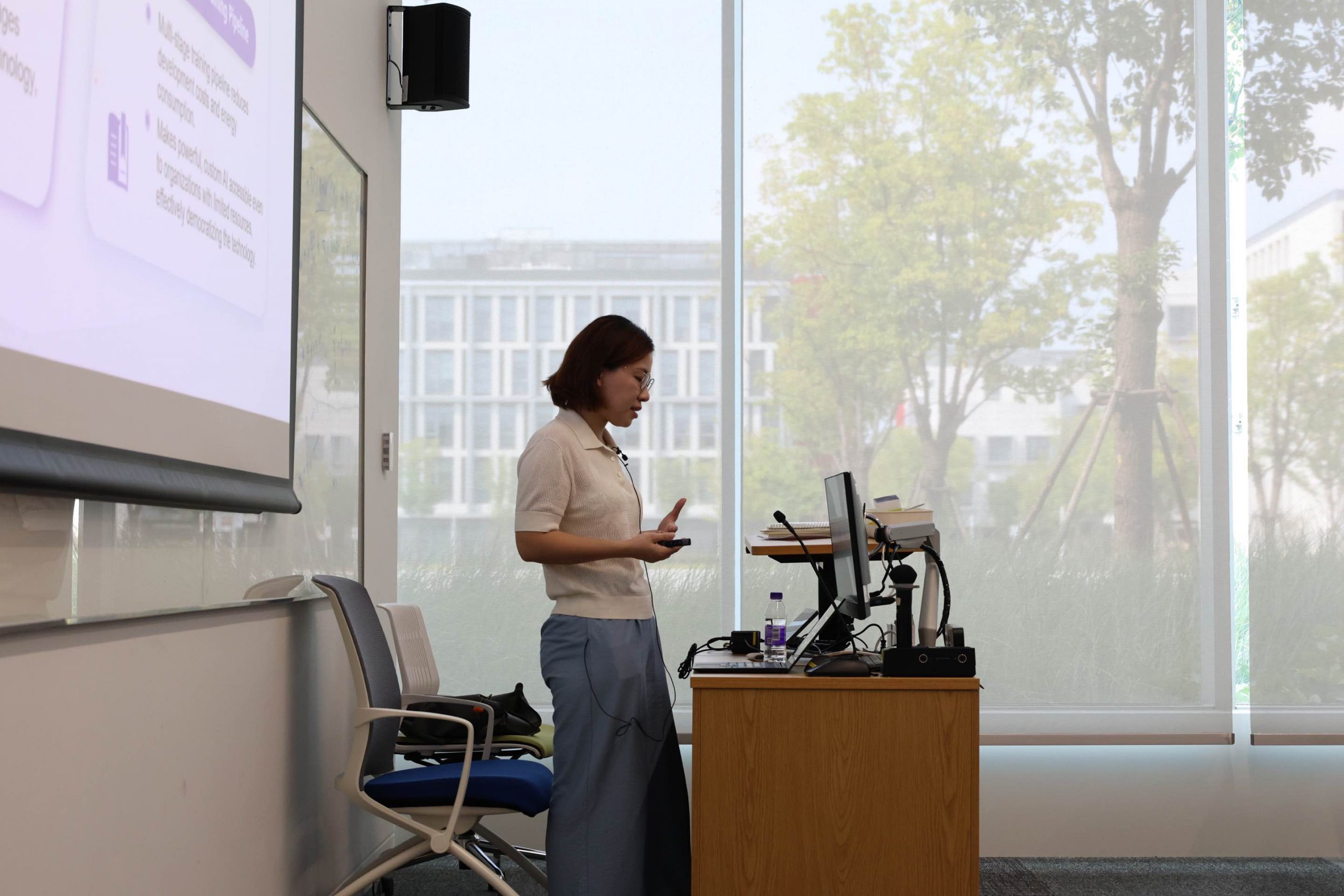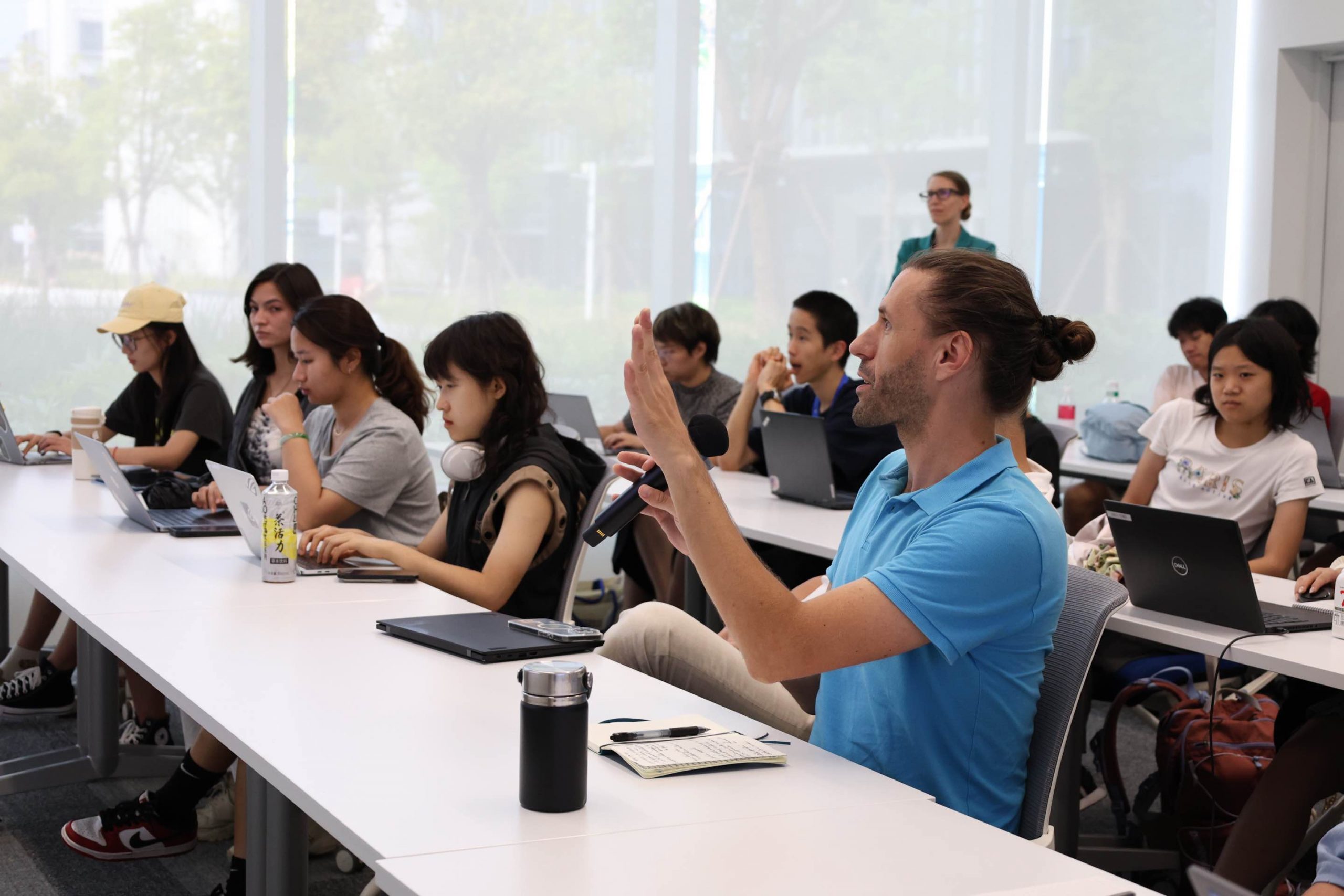By Nguyen Yen Vy Le, Class of 2026 | Edited by Chi Zhang

On 5 September 2025, the Center for the Study of Contemporary China, in collaboration with the Digital Innovation Research Center, hosted a guest lecture by Yi Zhang, Assistant Professor of Health Law at Tsinghua University’s Vanke School of Public Health. Prof. Zhang, whose work spans research, policy advice, and international engagement, drew an interdisciplinary audience of students and faculty, underscoring the broad relevance of her topic.
The talk focused on the rapid adoption of new technologies, especially artificial intelligence, in Chinese hospitals, and raised a central question: how can technological innovation be advanced without compromising patient safety? To frame this discussion, Prof. Zhang first highlighted structural challenges facing China’s healthcare system, including workforce shortages, rising costs, and the growing share of GDP devoted to health expenditure. These pressures often produce trade-offs among cost, access, and quality—a dilemma that AI applications are now being deployed to address.
A focal point of the talk was the DeepSeek R1 series of large language models, which by May 2025 had already been deployed in 755 hospitals for clinical assistance. Compared with alternatives like ChatGPT, DeepSeek R1 was favored for its customizable features, on-premise integration with existing medical records, and robust data security. Professor Zhang explained how these capabilities enable AI to enhance diagnostic processes, streamline hospital operations, and support evidence-based decision-making. She also pointed to the rapid expansion of AI in healthcare, from robotics to drug development, as part of a wider shift toward “intelligent health.”

Yet alongside these opportunities come significant risks. AI models can generate inaccurate or misleading outputs, and the uneven quality of hospital data increases the potential for compromised patient safety. Regulatory frameworks in China have struggled to keep pace with these developments. While the EU’s AI Act and WHO’s ethical guidelines provide emerging global reference points, China continues to grapple with these pressing issues: the unpredictable scale of AI models, ambiguous risk classifications that permit use in high-stakes settings, and the absence of a dedicated regulatory body. To address these gaps, Professor Zhang proposed the establishment of clear, risk-based standards, well-defined functional thresholds, and structured lifecycle management systems as essential steps to ensure responsible AI use.

The Q&A session extended the discussion, with participants raising questions about uneven training in AI use across hospitals and the potential for institutional collaboration to improve model performance. Professor Zhang stressed the need for adaptive regulation to keep pace with technological change and encouraged medical students to allow the field more time to develop before depending too heavily on AI in clinical practice.
In closing, Professor Zhang emphasized that the integration of AI in healthcare is not merely a technological issue but also an ethical, regulatory, and governance challenge. By bringing together students and scholars from multiple disciplines, the event created space for a nuanced discussion of how AI might reshape healthcare while underscoring that patient safety and public trust must remain at the center of this transformation.


